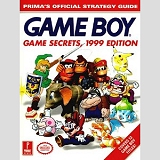Posted on
July 13, 2019 by
RevStu
Galaxy Wars, released by Universal in 1979, is one of the first wave of "proper" arcade videogames (defined here as coded on ROM chips rather than being semi-mechanical or solid-state like Pong).
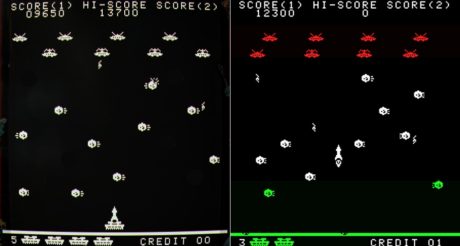
Running on a hacked Space Invaders board (as most of the first wave did), it actually bears a lot of similarities to Taito's 1978 blockbuster. It's got UFOs running across the top of the screen, above a field of asteroids which move one way across the screen, then drop down a level when they reach the edge and start moving back across in the opposite direction.
The screen was a monochrome reflector – sometimes supplemented by sheets of coloured cellophane to mimic a colour display – and all the sound effects are ripped straight from Invaders.
It was a pretty dull game, and other than an inexplicable Japan-only SNES port in 1995 (which seems to have been the only ever licenced home version on any format) it made very little impact on posterity.
Until this week, when it suddenly threatened to become mildly interesting.
Read the rest of this entry →
Category
analysis, games, investigative journalism
Posted on
June 18, 2017 by
RevStu
There's nothing about Ramboat (Genera, free, iOS and Android) that isn't interesting. The game itself is a short, punchy and fun pure arcade shooter that most obviously channels Metal Slug and Irem's much-underrated In The Hunt. Indeed, it's basically a very clever adaptation of the latter game for one-thumb control, but presented with all the beautifully-detailed character of the former.
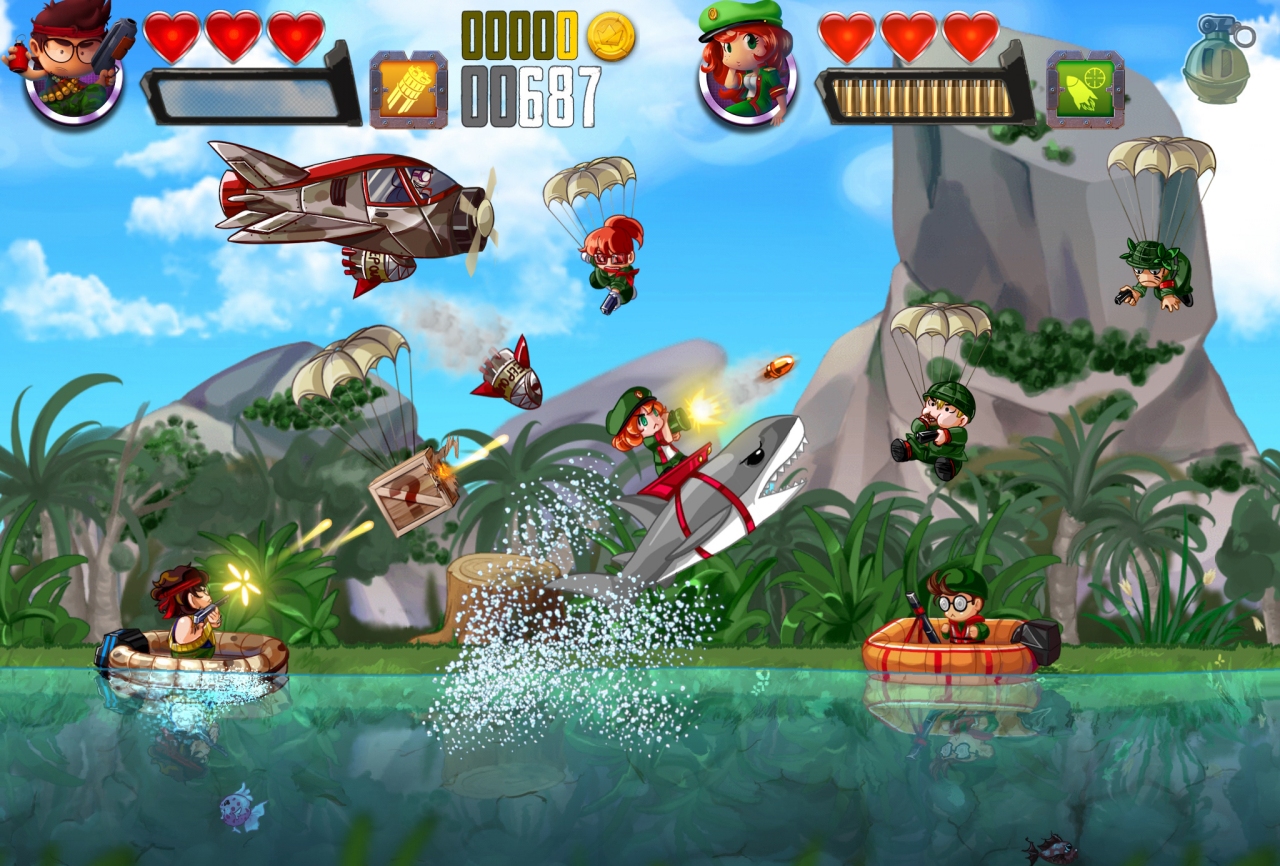
But this isn't the article I've been meaning to write for years about the fascinating and often incredibly elegant and even revolutionary ways that developers have rejigged every traditional game genre for touchscreen devices in order to avoid going down the horribly unsatisfactory route of the "virtual d-pad".
Because the other most intriguing aspect of modern gaming*, particularly on mobile formats, is the monetisation of it. And in the case of Ramboat, the opportunity for an experiment presented itself.
Read the rest of this entry →
Category
analysis, games
Posted on
February 28, 2013 by
RevStu
(I've been meaning to write this piece for months, but – not entirely unrelatedly – have been rather neglecting WoSland in favour of another site whose readers ARE in fact prepared to pay a very modest price for journalism. But what the heck, let's do it now.)
Today has seen the much-trailed worldwide release of Real Racing 3 for the iOS platforms. The controversial "free-to-play" game has a horrendous IAP structure which forces players to have to either wait for hours and hours (and hours) at paywalls between sessions or cough up a mindboggling fortune to play it continuously.
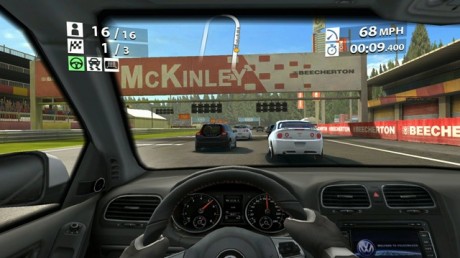
This, contrary to what you might think, is a good thing.
Read the rest of this entry →
Category
analysis, free stuff, games
Posted on
October 30, 2012 by
RevStu
"Those who have been angry about all this – don’t investigate the people, investigate the system." (Robert Florence, writing on John Walker's blog last week.)

Let's see what we can do, eh?
Read the rest of this entry →
Category
analysis, disturbing, games, investigative journalism
Posted on
October 28, 2012 by
RevStu
The quotes below come from an April 2007 piece entitled "And The Winner Is", concerning the inaugural Games Media Awards of later that year, written by Kyle Orland for GameDaily.com. The site no longer exists, but you can still read the article via the ever-handy Internet Wayback Machine.
""We actually found a lot of people in the games media don't feel well recognized by the industry they served," said Stuart Dinsey, Managing Director for Intent Media and the brains behind the awards show. "We felt this was a good way to give them some of that recognition and have a great party for everyone to get together at the same time."
"As for the all-important judging itself, Dinsey said the exact process was still being tweaked. Dinsey added that he'd like to get votes from "all the leading companies" in the games industry, probably by asking PR representatives to consult with their colleagues and place a vote to represent the company as a whole. Dinsey said the exact makeup of the judging panel will be kept secret until after the voting is done, to prevent any quid pro quo situations from developing."
But the mere specter of industry voting was enough to give some members of the press pause about the awards. "The games industry are the last people who should be voting for awards in games journalism," said British game freelancer Kieron Gillen. "It's a bit like the prisoners voting for who's their favourite prison guard." Gillen said he worries that the industry voting will make the award one "you wouldn't want to win…. because it's basically shorthand for 'Lapdog Of The Year award'.""

(Despite these comments, Gillen accepted a GMA that very year, and this month pocketed the "Games Media Legend" prize to bookend it with. He attempted to justify his instant U-turn the day after the 2007 award by saying "The awards don’t really matter. PRs are fine. They’re just people." In a fine twist of irony he now pontificates at highbrow public events about how independent games journalism is of PR, and is also a judge in the "Games Journalism Prizes" awards, along with a number of other "concerned games industry types", several of whom are also GMA winners.)
Now the owner of the PR-driven GMAs uses their power to censor journalists with legal threats for expressing honest opinions and accurately quoting people's own public comments to illustrate a valid and fair point. Now maybe we're just old and bitter (well, there's no "maybe" about it), but it seems a pretty odd way of "recognising" games journalism to us. Unless, that is, you ponder who voted on the first GMAs (and still vote on them now), and start wondering to yourself exactly which industry it was that Stuart Dinsey meant when he said "recognised by the industry they serve".
Category
analysis, disturbing, games, media
Posted on
September 24, 2012 by
RevStu
Like picking at a scab or peeling sunburned skin (and roughly as attractive) there's something addictive about the sheer awfulness of Apple Maps. Having already highlighted its total inability to perform the most basic function of an electronic map – finding places to within, say, five miles of their actual location – I couldn't resist going back to the Apple Store later the same day to document the visual quality of its maps. And because a picture's worth a thousand words, let's get straight to the results.
Read the rest of this entry →
Category
analysis, useless Apple cunts
Posted on
September 24, 2012 by
RevStu
The internet is, let's say, a place known for exaggeration. So while the examples of Apple Maps that have been posted everywhere in the last few days were pretty compelling evidence, we weren't going to be absolutely sure until we'd seen it with our own eyes. So once the queues of worthless human refuse had died down, we popped into the Apple Store this morning and had a look.

Readers, take everything you've heard about how bad Apple Maps is and double it.
Read the rest of this entry →
Category
analysis, useless Apple cunts
Posted on
September 15, 2012 by
Scott Minto
We're just beginning to see how the future of the UK will look under austerity. The full horror of the cuts may not be due to bite until later in 2013, but already we can see where and how they're likely to affect the UK population. Among the most controversial of these measures (so far) are the proposed regional levels for pay and welfare.

The regional pay proposals would see public workers paid less the further from the south-east of England they work (although devolved services in Scotland would be spared this), while the regional welfare payments would see a person on benefits paid less if they live in a poor area of the UK.
At present, government jobs are split into pay bands, with those on a certain band in one occupation earning roughly the equivalent of another public sector worker on the same band in another occupation. There's room for manoeuvre within the bands, but not much. These banding brackets are agreed through national pay negotiations by unions, ensuring that staff are treated fairly and consistently regardless of where they work. However, the creation of regional pay proposals puts an end to that idea.
Read the rest of this entry →
Category
analysis, politics
Posted on
September 13, 2012 by
RevStu
I wish I didn't have to write what I'm about to write. There's no possible benefit to it for me. All it will bring me is hatred, abuse and threats, some from people whose feelings I care about. It won't make any difference to anything, because only a handful of people will ever read it and most of those who do will be outraged by it. But I have to do it anyway. I'm trapped – trapped by conscience, trapped by sanity, and trapped by the words of the smartest, most perceptive writer who ever lived.
"Journalism is printing what someone else does not want printed: everything else is public relations." (George Orwell)
On the 15th of April 1989, ninety-six people went to a football match and didn't come home. They died in hideous scenes which were broadcast to the world and splashed across newspaper front pages, and they died as a result of a catastrophic combination of circumstances, which had any one of them not been present would have averted the disaster. Yet of all those factors, there's one that nobody is allowed to talk about, despite the fact that it's the one that actually killed every single victim.
Damn everyone whose cowardice means that the burden of saying so has landed on someone as stupid, inappropriate and hopelessly ill-equipped for the task as me.
Warning: the following piece contains distressing images.
Read the rest of this entry →
Category
analysis, horror, sport, stupidity
Posted on
September 05, 2012 by
RevStu
As regular readers will know, we've always been keen admirers of Bruce Everiss's almost-unparallelled videogames-industry knowledge and expertise. So we've been thrilled to recently see him storming back to the cutting-edge as chief of marketing for David Darling's new company Kwalee, which has hit on the genius idea of making it big in the ultra-competitive App Store market by employing a vast team of staff to come up with two-player-only knockoffs of ancient board games.

The well-documented problem with the App Store, of course, is visibility. To have a chance of getting your game noticed you need it to get lots of great reviews, and when your games are extremely mediocre and competing against hundreds and hundreds of existing clones of the same thing which DO offer single-player play as well as online, the chances of that happening are slim.
Unless you cut out the middleman and write the reviews yourself, of course.
Read the rest of this entry →
Category
analysis, crime, games, investigative journalism, iOS
Posted on
June 11, 2012 by
RevStu
Much as Scots have grown accustomed to trying to pretend otherwise, you'll probably have noticed that there's currently another international football tournament going on without us. This evening sees the first appearance in the European Championship of the England team, the only side competing in the entire competition who don't have a national anthem to call their own.

Over two decades of living in England hasn't changed this writer's feelings towards the country's international team much. I still want them to lose – not because I hate the English people, but precisely because I like them.
Read the rest of this entry →
Category
analysis, football
Posted on
June 06, 2012 by
RevStu
I was scurrying around in the WoS Archives this evening looking for something else, and I stumbled across this. It's a piece from April 2000 for now-defunct games-industry trade paper CTW, in which I interviewed Andy Smith of Future Gamer, the email magazine that eventually evolved into GamesRadar.
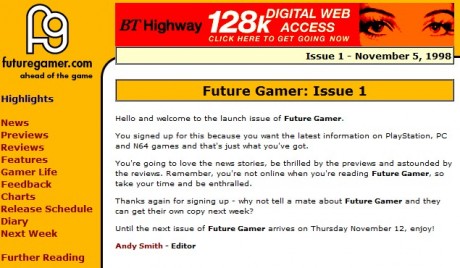
Marvel through your tears, viewers at the eerily accurate foretelling of the state of games journalism that was about to unfold.
Read the rest of this entry →
Category
analysis, games, lost WoS















